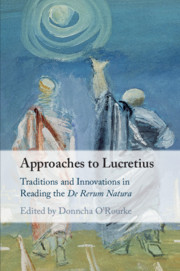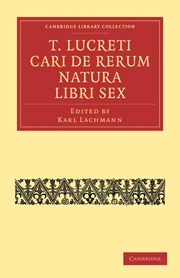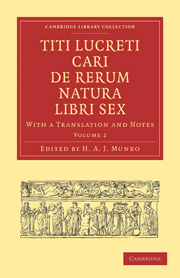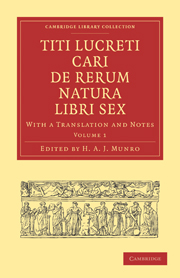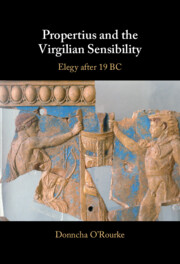Approaches to Lucretius
Both in antiquity and ever since the Renaissance Lucretius' De Rerum Natura has been admired – and condemned – for its startling poetry, its evangelical faith in materialist causation, and its seductive advocacy of the Epicurean good life. Approaches to Lucretius assembles an international team of classicists and philosophers to take stock of a range of critical approaches to which this influential poem has given rise and which in turn have shaped its interpretation, including textual criticism, the text's strategies for engaging the reader with its author and his message, the 'atomology' that posits a correlation of the letters of the poem with the atoms of the universe, the literary and philosophical intertexts that mediate the poem, and the political and ideological questions that it raises. Thirteen essays take up a variety of positions within these traditions of interpretation, innovating within them and advancing beyond them in new directions.
- Gathers an international team of scholars to present a range of approaches to Lucretius
- Structured around key methodologies in the interpretation of Lucretius
- Innovates within and beyond existing critical approaches to Lucretius
Reviews & endorsements
'This rich volume will help all students and readers of Lucretius's poem challenge their preconceptions about it. All in, this volume represents an exciting collection of views on Lucretius that will undoubtedly inspire further scholarship not simply by setting out practical approaches for others to draw on and build upon but by showing how risking the unusual in our literary and philosophical thought can yield rich harvests from the seemingly familiar.' Emma Woolerton, Bryn Mawr Classical Review
Product details
July 2021Paperback
9781108433105
338 pages
229 × 152 × 18 mm
0.457kg
2 b/w illus.
Not yet published - available from February 2025
Table of Contents
- Introduction
- Part I. The Text:
- 1. Critical responses to the most difficult textual problem in Lucretius David Butterfield
- Part II. Lucretius and his Readers:
- 2. Reading the 'implied author' in Lucretius' De Rerum Natura Nora Goldschmidt
- 3. Common ground in Lucretius' De Rerum Natura Barnaby Taylor
- 4. Coming to know Epicurus' truth: distributed cognition in Lucretius' De Rerum Natura Fabio Tutrone
- Part III. The Word and the World:
- 5. Infinity, enclosure and false closure in Lucretius' De Rerum Natura Donncha O'Rourke
- 6. Lucretian echoes: sound as metaphor for literary allusion in De Rerum Natura 4.549-94 Jason Nethercut
- 7. Saussure's cahiers and Lucretius' elementa: a re-consideration of the letters-atoms analogy Wilson H. Shearin
- Part IV. Literary and Philosophical Sources:
- 8. Arguing over text(s): master-texts vs intertexts in the criticism of Lucretius Andrew Morrison
- 9. Lucretius and the philosophical use of literary persuasion Tim O'Keefe
- 10. The rising and setting soul in Lucretius, De Rerum Natura 3 Emma Gee
- Part V. Worldviews:
- 11. Was Memmius a good king? Joseph Farrell
- 12. A tribute to a hero: Marx's interpretation of Epicurus in his dissertation Elizabeth Asmis
- 13. Plato and Lucretius on the theoretical subject Duncan F. Kennedy.

